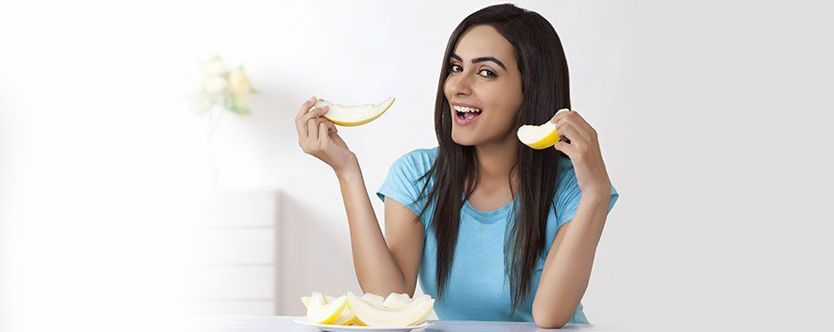
Assuming that you have followed the cholesterol lowering diet given on 21st May 1998 you may want to know how to continue further.
Diet Therapy
If you are one of those with the worst cholesterol readings i.e. very high LDL and very low HDL, then diet therapy would work best for you. But if you are slightly above the normal range, then the efficacy of the diet in reducing cholesterol is also proportionately less. To recap the last article on cholesterol lowering strategies; I had mentioned that as long as your body is well nourished and you have sufficient supplies of antioxidants available as in fruits and vegetables you need not worry about your body’s ability to handle cholesterol. However, if you are eating a lot of processed and refined foods, whole milk and red meat and your blood tests shows a bad HDL to total cholesterol ratio and very high cholesterol readings, then you must get down to some serious thinking about your dietary habits.
I have seen that people with a very high cholesterol reading are often surprised at their lipid profile and wonder where they could have gone wrong, especially, if they are vegetarians. My advise to you is that just by being vegetarian you do not wear a shield against heart disease. If you scrutinize your dietary habits you may find that you are eating a lot of refined cheese, consuming refined vegetable oils, white bread, sweets, chocolate cakes, icecreams, whole milk, fried items, these may be a total lack of exercise, or you may be highly stressed. The degree to which your arteries get damaged depends on:
- The amount of free radicals in the body. (All these above mentioned foods promote cell damaging free radical activity.)
- The amount of antioxidants that you consume (Antioxidants are present in fresh fruits and vegetables and in raw nuts & whole grains) they prevent free radical activity in turn cell damage.
- The type of oil you use for cooking. (Refined vegetable oils containing PUFA are unstable than olive oil.)
- The amount of soluble fiber in your diet.
We all have cholesterol
All of us have LDL cholesterol and HDL cholesterol in your blood streams. LDL cholesterol is lower in protein density and carries more fatty acids & is more prone to oxidation. It delivers cholesterol to the tissues. If you do not consume sufficient antioxidants like vitamin A, C, E, Selenium, it can get oxidized very fast & that is when the problem begins. For this reason, it is called the bad cholesterol.
But you must know that it is not bad unless it oxidizes. HDL cholesterol, on the other hand, is higher in protein density & carries less fatty acids. It picks up excess cholesterol left by LDL and brings it back to the liver or to the tissues that need it. Hence it is call good cholesterol. Between these two types of cholesterol LDL carries more oxidation & fatty acids and it is more prone to oxidation & damage from free radicals. Therefore when you have an undesirable cholesterol ratio i.e. more LDL & less HDL you need to improve it. The right diet along with exercise will help us to do it.
The Right Diet
Breakfast
- 1 cup tea (no sugar, 2 tbs. low fat milk)
- 1 glass carrot juice
- 1 to 2 bowls papaya
Lunch
- 2-4 oat bran + oatmeal chappatis ( 3 tbs. Oat bran, 1 tbs. Oatmeal per chappati)
- 2 cups of any vegetable
- 2 cups raw salad
- 150gms. fish (alternate days)
Tea
- 1 cup tea (no sugar, 2 tbs. low fat milk)
- Apples or pomegranate or oranges
Dinner
- 2-4 at bran + oatmeal chappatis (3 tbs. Oat bran, 1 tbs. Oatmeal per chappati)
- 1-2 cups any vegetable
- 1 cup whole channa or rajma or green mung
- 1 cup raw salad.
Please note that you should use 2-3 tbsps of olive oil for salad dressings as well as cooking.
Additional tips
Follow this diet for the next two weeks. You would then have completed a month of this cholesterol lowering diet. Get your cholesterol level checked after a month and wait for the next diet plan. Continue a 30 min. walk 4-5 days a week. If you are suffering from one or more other medical problem or if you are on any medication, it is advisable that before attempting any diet please consult your family physician.
